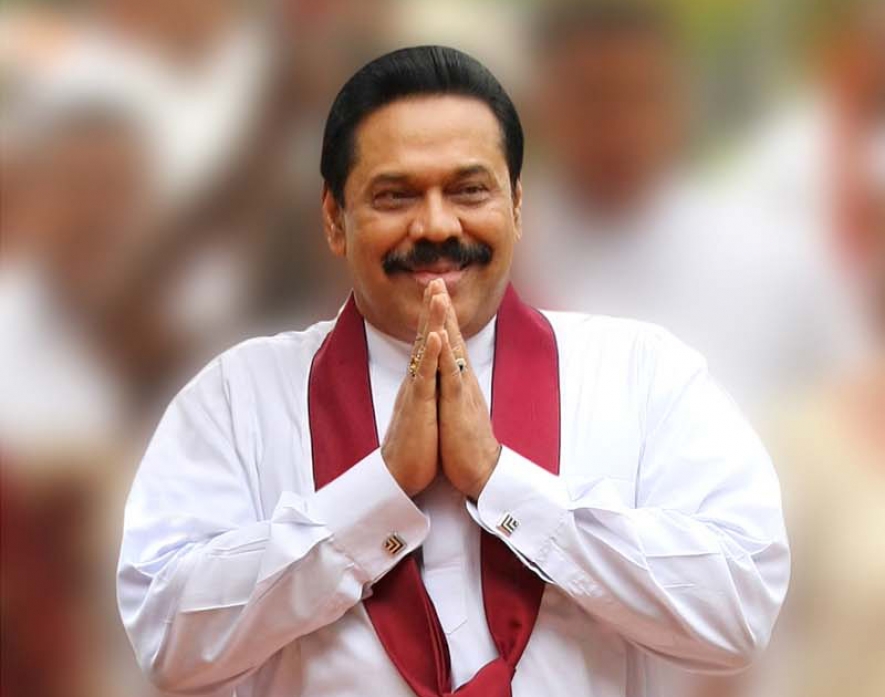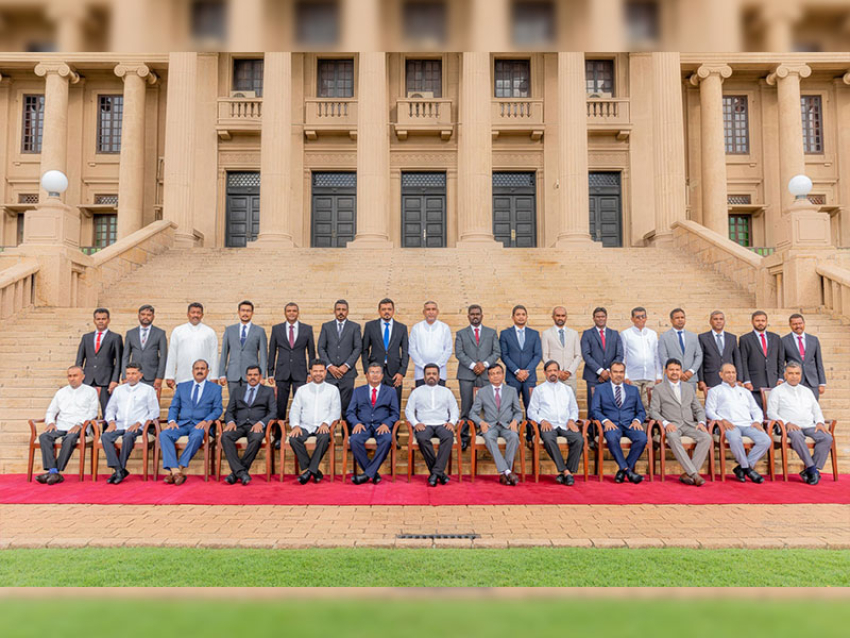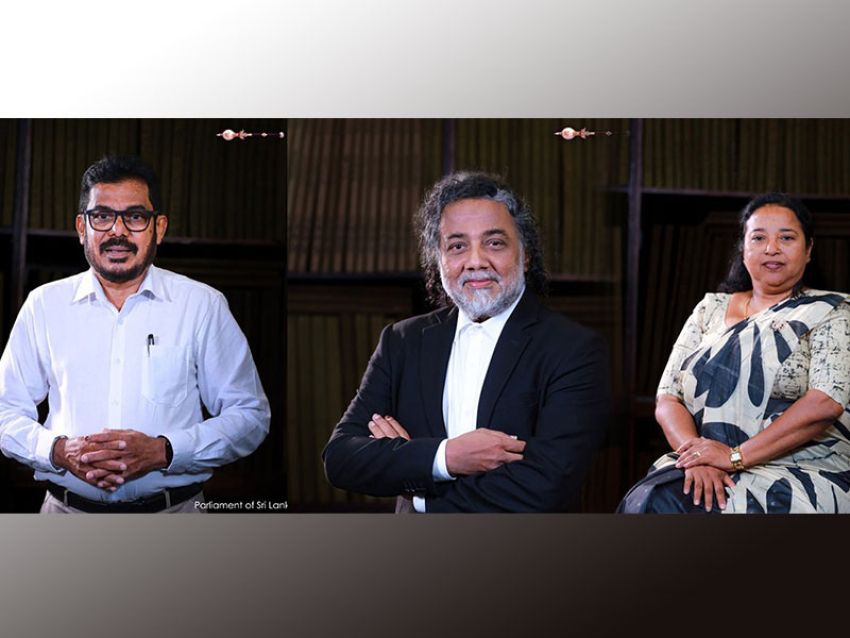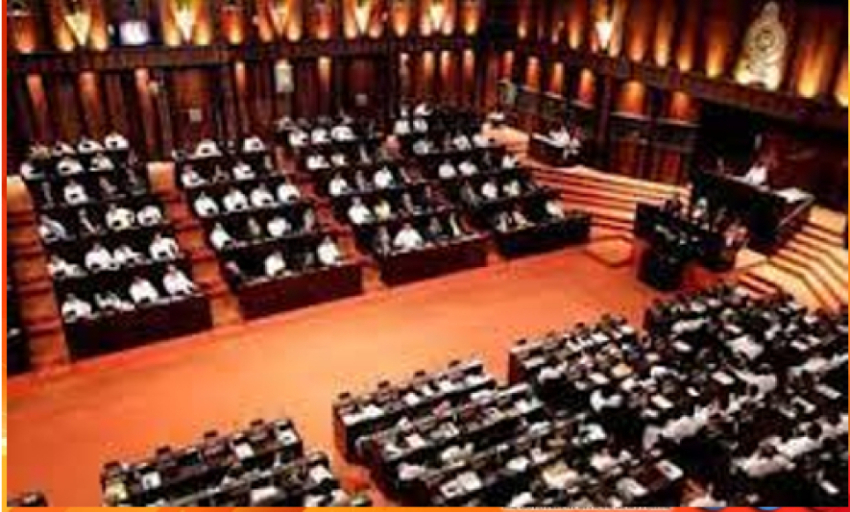This will be Mahinda Rajapaksa's third election for the Executive Presidency. He was first elected on November 17, 2005 and was re-elected for a second term on January 26, 2010. He took the oaths as President for the second term on November 19, 2010 and completed four years in office, necessary to complete before calling for a fresh poll, on November 19, 2014.
In a country that has seen presidential elections earlier, having elected three previous presidents since 1982, when JR Jayewardene won his first elected term as president, and a democracy that has seen many changes of government through the ballot, what is most surprising is that no candidate from the opposition has yet clearly emerged to challenge the incumbent president.
The call for a common candidate to face Mahinda Rajapaksa in this move for a third term has been going on for several months. Many are the voices that have been heard calling for this candidate, and many are the strategies proposed. Yet, what is seen as the President gets his campaign rolling is more of common chaos, as this column stated last week, than any sign of a common candidate.
Lack of purpose
Pledges have been made to rid the country of the Executive Presidency, other plans have been announced to keep the Executive Presidency, but reduce its powers; much has been said about the need to return to the old Westminster style governance, which JRJ changed in 1978. But there seems to be a total lack of purpose or organizational capability among those who are ranged against Mahinda Rajapaksa, in his renewed call for a democratic choice to remain the national leader for another term.
Much of the earlier din about this election was to do with its legality. Constitutional provisions with regard to presidential terms and the legality of a third term have been canvassed on many a public platform, and in the mass media. Well know lawyers, and even those with experience in the higher judiciary, have been splitting legal hairs in public on the issue. There is silence on this matter once Mahinda Rajapaksa obtained the opinion of the Supreme Court that there is no legal impediment to his running for another term.
While those who are busy planning a common challenge to Mahinda Rajapaksa may continue their operational plans, what is most surprising is that the largest political party of the Opposition, the United National Party, has yet to make known who its candidate would be, and its alternate policies, if any, to those of Mahinda Rajapaksa and the SLFP-led UPFA, that is in office under his leadership.
Divisions and weakness
Such indecision and/or delay are not what one must expect from a political party that has played an important role in the politics of this country since independence in 1948. After the LSSP and Communist Party, the UNP is the oldest national democratic party in the country. It has had prime ministers who had a good impact on the country, and also gave strong leadership to the Opposition. It brought about the change from the Westminster system to the partly French-style Executive Presidency, about which this campaign shows signs of turning on. But, its inability to come out with a clear candidate or policy, through all these months of pre-campaign strategy, demonstrates both divisions within it and an overall weakness in political strategy that cannot appeal to those who believe in good democracy.
Of course it has major issues to resolve in giving a fight to defeat Mahinda Rajapaksa. There are issues that go back to JRJ's referendum extending the life of the Parliament that brought the UNP to power with a five-sixth majority in 1977. It is answerable to the people, and also to the world, for what happened in 1983 - the Black July - that certainly had a strong hand of government in the attacks on the Tamil minority that was to lead to the terrorist violence of the LTTE. It also cannot forget its role in antagonizing the Indian leadership of Indira Gandhi, which led to India's RAW being involved in training the first LTTE cadres, and spawning terrorism here. It also saw the Indo-Lanka Agreement, that had little of Sri Lankan consent and the 13th Amendment that is still a matter of major concern in this country.
These are clearly not issues that have been erased from the minds of Sri Lankan voters. Even if they lie in the background of political thinking, they can easily come to the fore, when the UNP, whether alone or in a combination, has to campaign against Mahinda Rajapaksa, who stands out as the leader who defeated the LTTE, and restored peace in this country, after nearly three decades of the brutality and savagery of the LTTE.
Memories of voters
There are other issues too, that are closer to the UNP leadership of today, also to do with the battle to restore peace in the country. It will have to face the memories among voters of the Ceasefire Agreement with the LTTE, brokered by Norway. It is not easy to shake off memories of how it posed major threats to Sri Lankan civilians in LTTE controlled areas or what were considered "border villages" at the time, and also helped strengthen the LTTE even further for a prolonged battle before final defeat.
There will also be questions asked about what the UNP has to say today on how it belittled the military operations to defeat the LTTE in the later stages of the battle against terror. Those who said that Toppigala, one of the key operational centres and a hideout of LTTE cadres at the time, was just a bare jungle and nothing of military purpose (2007/2008), or those who referred to the Elephant Pass, or Alimankada, as a fight at Pamankade, or were ready to mistake Kilinochchi for another location with no fight, are still in the ranks of the UNP's leadership, and very loud in the disputes within it.
The problems the UNP will have in facing up to the new challenge of Mahinda Rajapaksa, is whether it will be prepared to admit these strategic errors (if they were indeed errors and not part of political strategy), and whether they are ready to apologize to the people for this approach to the battle against terror?
The UNP could evade these issues with ease at the last presidential poll, when Mahinda Rajapaksa was returned with a huge majority, because it took shelter under the common candidate of that day, Gen. (Rtd.) Sarath Fonseka, who was lured to a humiliating electoral defeat, and saved the UNP of that ignominy. But such escape is not available today.
All the calculations that have been going on with continued uncertainty on a common candidate, has now compelled the UNP to face up to the reality of democratic politics. It cannot allow the clear divisions within the party, which are obviously having an impact on its popular support base to dominate, by evading the political necessity of a contest. At the same time, it must be aware of the many challenges it faces with Mahinda Rajapaksa as the rival.
Of course, there are others who are now trying to evade the fray by stating they do not accept this election as being valid or legal, and thereby try to cover up their own weaknesses in reaching out to the people. That is hardly giving ear to the people, however catchy their slogans may be. Red as they may be in political hue, they have yet to admit their own serious wrongs in the strategy of so-called revolutionary violence that was largely directed against the people. These also call for loud and clear apologies; recantation that comes from genuine self-criticism.
The challenge ahead
Both the UNP and any common political outfit that it will be in the arena, will have to come out with policies that can have a favourable impact on the people, who have live in five years of peace, have seen the restoration of democracy, in the North, East and South. Leaders with long experience in defeat must have the strength to shake off the garb, image and character of defeat, to show the people policies that can challenge the economic growth in the past decade, even during war, and the new directions the economy is taking, with new interest among foreign investors. They must be able to respond to the challenges of infrastructure development - that has pushed aside the partitions of war and brought about a new unity through the Yal Devi by rail to Jaffna and back, and the Southern Highway that speeds people to Galle and Matara...and thereby brings Hambantota and Kataragama that much closer in time to the rest of the country.
The challenge is now thrown to the strategists of common candidacy in the coming presidential poll. The uncertainly shown so far, despite the big talk of secrecy and strategic silence, is fast losing its very purpose. The lineup of diverse personalities, and contradictory policies and proposals; the array of diminished political talent that is seeking to sway the public, and the struggle of emerging leaders to get ahead of traditional losers, must all take cognizance of the challenge ahead of them. It is Mahinda Rajapaksa, who has called for re-election...who or what can the strategists of the politics of confusion and lack of conviction, come up with to meet this challenge?




















